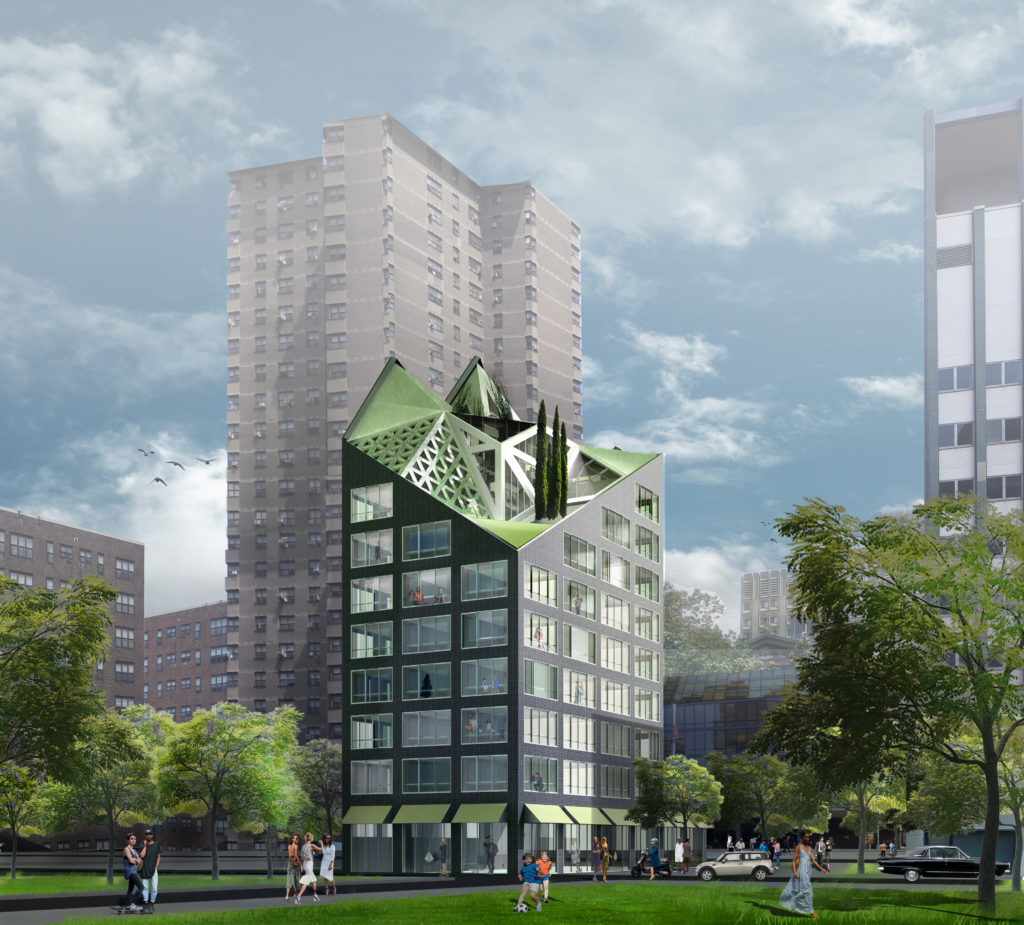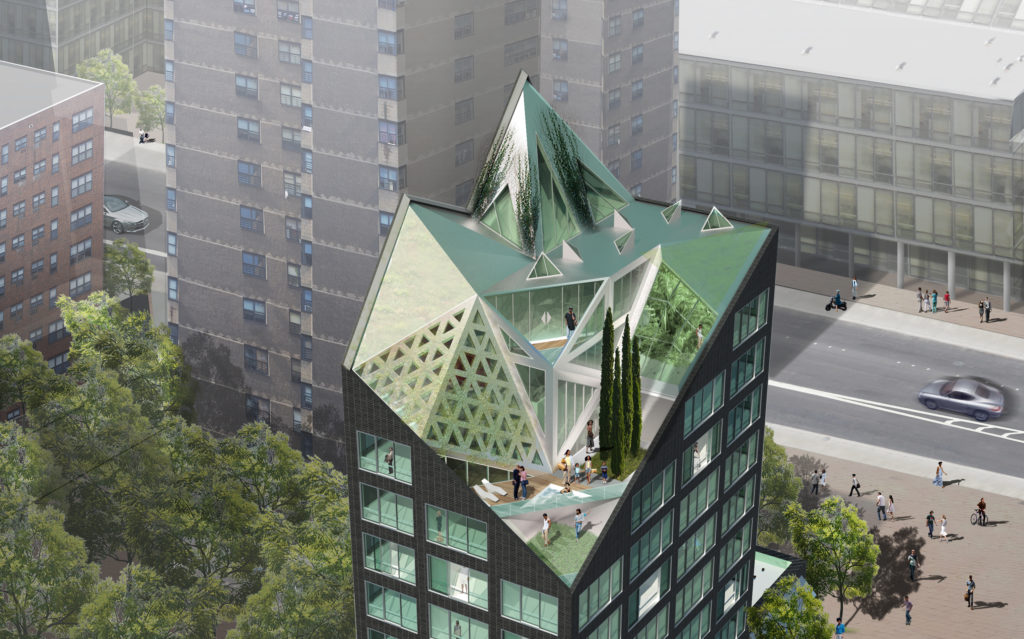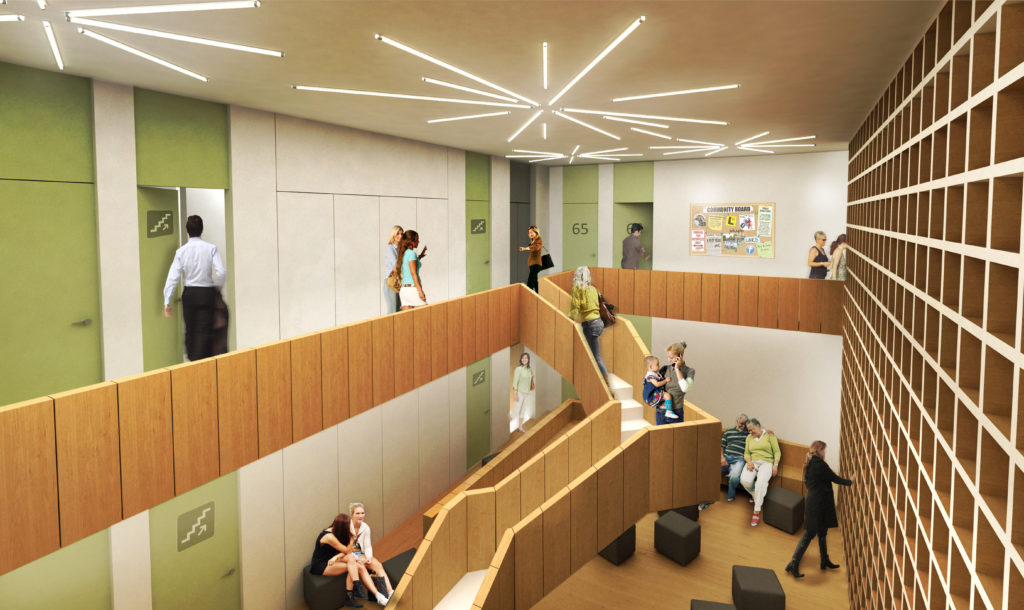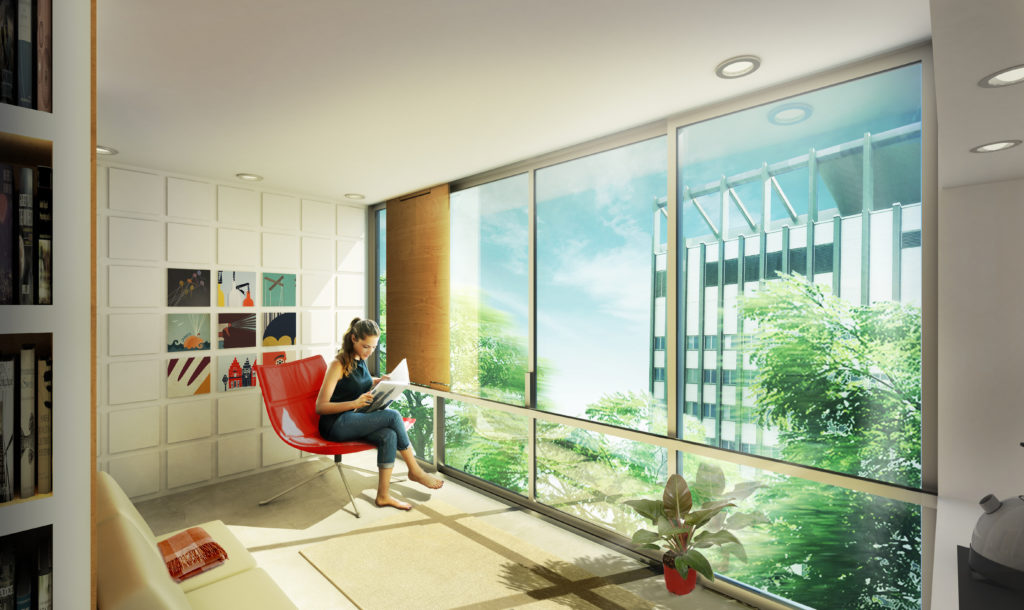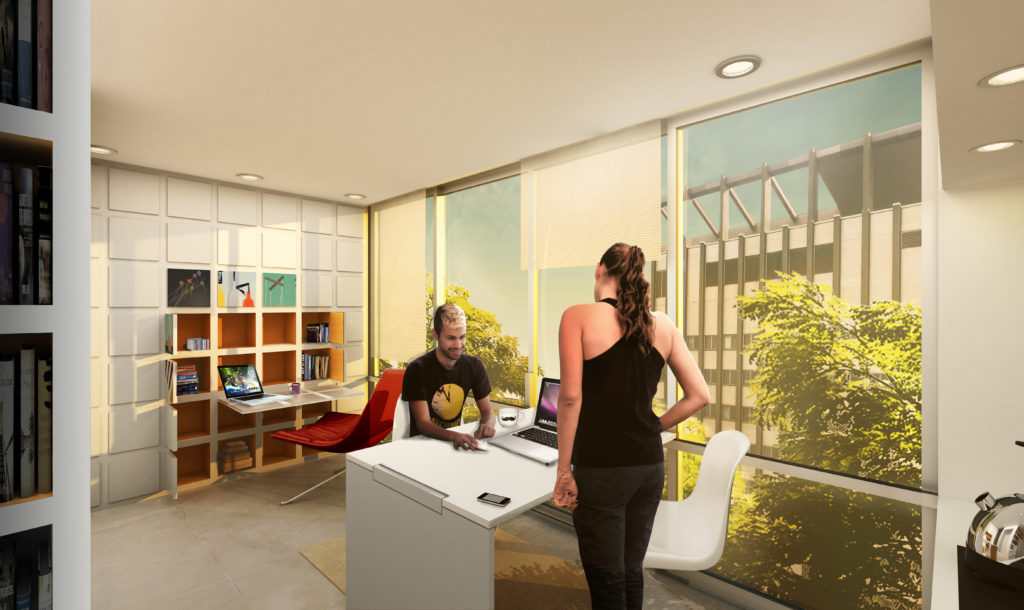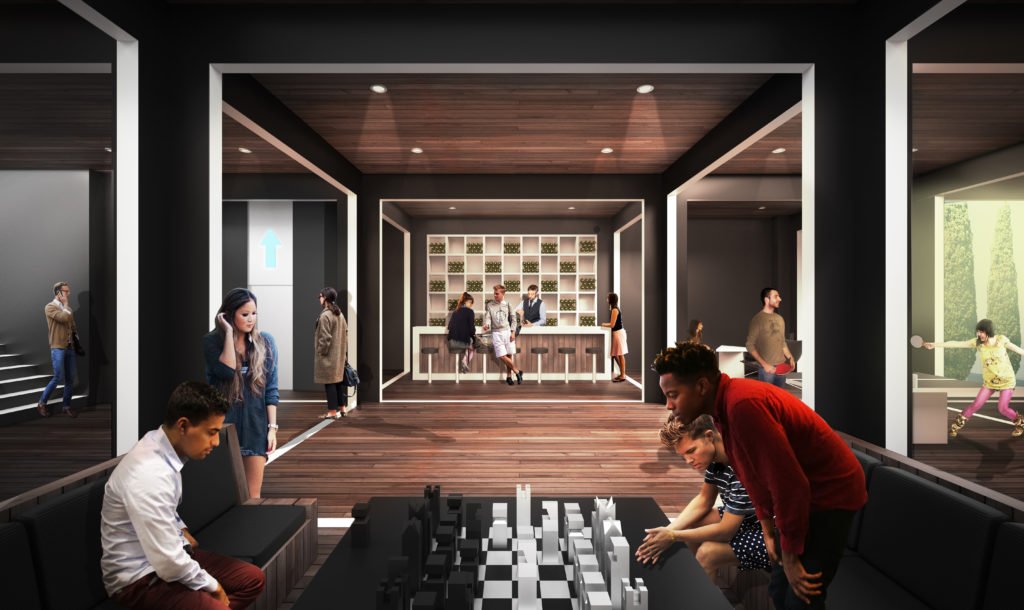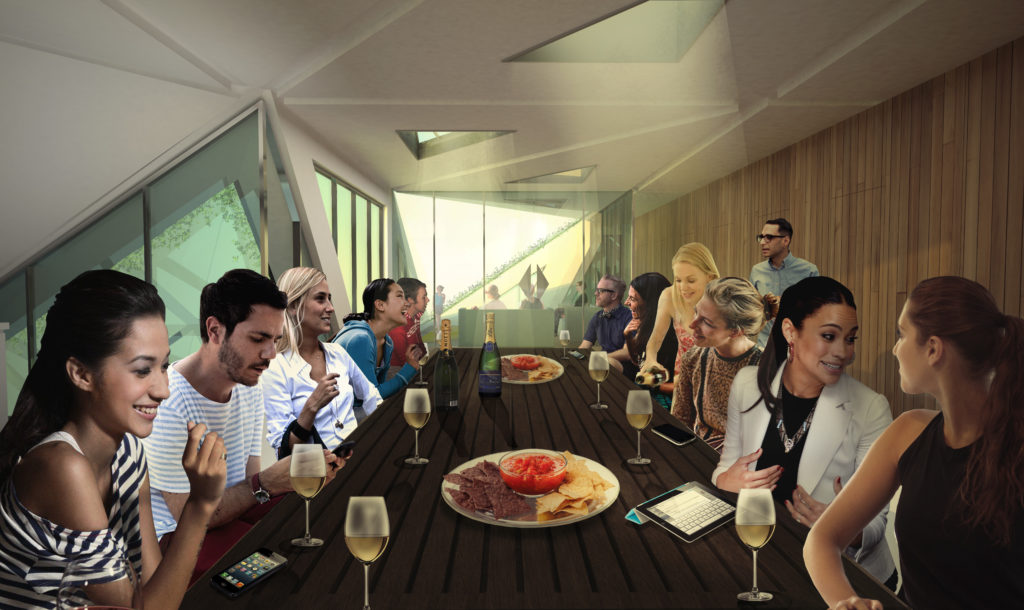In 2012, New York City’s Department of Housing Preservation and Development (HPD) and Mayor Bloomberg launched a program to develop a new model of “micro-unit” housing for New York City. The RFP was the result of an initiative developed by the Citizens Housing and Planning Council which Matthew Blesso had worked on since 2010. Blesso Properties, in conjunction with affordable housing developer Bronx Pro LLC and architects HWKN, responded to the RFP and was designated as one of five finalist teams, which were ultimately showcased by the Museum of the City of New York.
Called “MAX”, Blesso Properties’ proposal represents a new way to live in the city, questioning traditional notions of residential development. Turning the typical skyscraper on its head, the building design places shared amenity spaces such as a gym, hot tub and climbing wall where high-priced penthouse apartments would typically be located. Conceptually, the building is a community incubator composed of public spaces to work, create and interact. The experience begins at the lobby, a central hub connected to retail and a community space downstairs. The fifty-six apartments measure only two hundred and fifty square feet each. These efficient machines for living are arranged around a vertical public core moving up through the building in a choreographed social experience composed of double-height spaces for gathering, collaborating and socializing.
Shared resources, community building, and environmental sustainability have always been integral drivers for Blesso Properties. The City of New York shares these concerns and embraces them as opportunities. The discussion around housing needs continues to evolve and we are excited to be among the forefront of thought leaders on the subject. We plan to implement the concepts developed for as we build the next generation of housing in New York and beyond. One of five competition finalists showcased at the Museum of the City of New York
PRESS
Life Edited, January 2013
Arch Daily, January 2013
Mother Nature Network, January 2013
PR Newswire, January 2013
Architizer, January 2013
Inhabitat, January 2013
Curbed, January 2013
Architect Magazine, January 2013
Curbed, January 2013
The Architects Newspaper, January 2013
Gotham Gazette, January 2013
Planetizen, September 2013
Wall Street Journal, September 2012
AWARDS
2012 Submission one of five competition finalists showcased at the Museum of the City of New York
